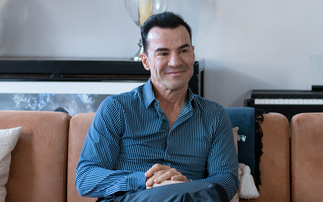Global equity markets have staged a remarkable recovery from their lows in March last year, but fund managers need to explore new areas of the market to identify true growth stocks, says Richard Turnill, head of asset allocation and economics at Merrill Lynch Investment Managers.
“Last year was one in which you wanted risk and cyclicality in your portfolio. In the early stages of economic recovery, a lot of stocks were on depressed valuations and liquidity was plentiful. This year is very different,” he notes. Given the prospects and performance of cash and bonds, equities are still the asset class of choice, but there are few bargains on offer.
While pure growth portfolios have to be virtually fully invested all the time, balanced portfolios will tend to hold slightly fewer stocks.

“We are looking to position portfolios to hold on to the gains we have made and to focus on stocks where we can continue to justify the valuations. We are finding cheaper stocks among higher quality companies, rather than the riskier sectors people tend to associate with growth from the late 1990s.”
Globally, equity markets in aggregate offer at best fair value. “Measures that look at the sustainability of earnings, such as price to normalised earnings ratio, are coming in at around 20 times, which is far from cheap,” says Turnill.
“It is much harder to find stocks we feel will exceed earnings expectations. They also tend to be in areas of the market that have not gone up so strongly in the past 12 months.”
The targets are companies with robust balance sheets and the potential to generate strong cashflow. “That might mean they do not have strong cashflow today, but they must have the potential to generate strong cashflow over the medium term. They are often companies with strong brands and strong franchises,” he adds.
On a regional basis, the US equity market is looking expensive, he adds. The eurozone is still providing a few positive earnings surprises, but it is the UK that offers the best value and growth.
“In the 1990s, the equity market boom was led by a very narrow group of stocks – the large cap technology stocks, but the rally over the past 12 months has been much more broad based. There are actually fewer cheap stocks in the US market today than there were at the peak on the equity market at the end of 1999,” he explains. “It is very hard to find attractively valued companies.”
Unusually, there is also now relatively low dispersion in the US – the difference between the valuations of the cheapest stocks and the most expensive is narrow.
Historically, it is near an extreme, with valuations very flat across the curve. But in Europe there is still a degree of dispersion, and asset managers can find cheap stocks, even after the gains of the past 12 months.
“The kind of stocks we are looking for, those with positive earnings and strong long run returns and where valuations can increase, are in the growth category. That is in contrast to last year, where the big gainers tended to be value stocks, from consumer cyclicals to materials to industrials, which outperformed growth stocks globally.”
In pursuit of sustainable medium-term growth, managers are moving up the capitalisation spectrum away from small to mid cap stocks, which have been very attractive, to larger cap companies.
Turnill’s portfolios are now very underweight technology. “It is no longer a case of ‘growth at any price’,” he notes. “The interesting companies will be those that can generate strong medium term cashflow.
He favours consumer discretionary stocks and, within that category, consumer staples such as cosmetics firm Estée Lauder, with potential for earnings growth, or UK regional publisher Johnson Press, with its strong free cashflow. In the US, he holds ITT, a games technology firm.
Last year investors saw massive upgrades to earnings expectations, which drove outperformance among value stocks. However, since January some of the macroeconomic momentum has stalled.
“We are no longer getting those surprises. The momentum indicators are slowing down – not falling, but not rising as fast,” Turnill says. “And as the economic and earnings cycle matures, you see a rotation from lower quality cyclical stocks to higher quality stocks, and that tends to mean growth stocks.”
In a global scenario, the UK stands out as offering better value and prospects. The market as a whole still looks quite cheap, with a price to nominal earnings ratio of about 14 times or below, giving an earnings yield of 7%.
Turnill points to the structure of market ownership in the UK. “There are a lot of natural sellers, such as the insurance companies. Pension funds are still selling for liability reasons. The market is also concentrated in areas like healthcare, telecoms, banks and energy stocks, with not too many technology stocks.”
He believes that equities selling by pension funds may be more talked about than actual, but identifies it as a drag on sentiment in the market. “We are seeing incremental change, but it is a factor that limits the upside, particularly if the market reaches certain levels.”
“Although absolute valuations in equities are not tremendous globally, the relative valuation versus cash or bonds, feels more attractive. And nowhere is that more true than in the UK, where the earnings yield on the market is 6%-7%, when real bond yields are 2%. In the UK, you are still getting a substantial premium for owning equities.” International buyers are coming to the UK market, recognising the relative value here.
Although the economic news flow is starting to disappoint, the UK is still providing positive economic and earnings surprises. Turnill’s funds have been heavily overweight banks, but these holdings are now being reduced as valuations reach target levels.
Going forward, he favours real estate, partly because the mooted introduction of real estate investment trusts will boost market liquidity. Xstrata, the mining company, is another top 10 holding and Yell, the media stock, is a current favourite.
Macro liquidity is being supplemented by corporate liquidity, reflected in growing merger and acquisition activity, which suggests the equity market can move higher. International deals will lend support.
Elsewhere, global growth managers had significant weightings in emerging Asia last year. However, many funds are now locking in recent gains. “Emerging markets tend to offer strongest returns in the first phase of economic recovery,” notes Turnill, “and there is strong evidence that the cycle is maturing. Emerging market bond spreads are at the bottom of their historic ranges.”
Old stories often offer alert managers to new opportunities. An interesting twist to the global growth story is Japan, where selected blue chip stocks are trading in line with, or at a discount to, their peers across the world. Another opportunity should soon be apparent among quality US stocks, hit hard by the declining dollar.
Turnill has been underweight dollar assets and has benefited from the currency’s decline, but he believes the potential pain in the conversion rate for large companies that report in dollars is already fully priced into the stock, and may already have been overdone.
The dollar is likely to fall further because the fundamentals do not offer much comfort; the interest rate differential between the US and the UK is widening, and the US current account deficit is clearly far greater than in the UK. But that creates a new opportunity.
“The dollar is already meaningfully undervalued, but as this occurs we will be looking for high quality growth stocks in the US, which would look attractive converted back to sterling. You would be getting a 10%-20% boost just from the currency, so we are anticipating a few more of these coming onto our screens.”
While pure growth portfolios have to be virtually fully invested all the time, balanced portfolios will tend to hold slightly fewer stocks.

“We are looking to position portfolios to hold on to the gains we have made and to focus on stocks where we can continue to justify the valuations. We are finding cheaper stocks among higher quality companies, rather than the riskier sectors people tend to associate with growth from the late 1990s.”
Globally, equity markets in aggregate offer at best fair value. “Measures that look at the sustainability of earnings, such as price to normalised earnings ratio, are coming in at around 20 times, which is far from cheap,” says Turnill.
“It is much harder to find stocks we feel will exceed earnings expectations. They also tend to be in areas of the market that have not gone up so strongly in the past 12 months.”
The targets are companies with robust balance sheets and the potential to generate strong cashflow. “That might mean they do not have strong cashflow today, but they must have the potential to generate strong cashflow over the medium term. They are often companies with strong brands and strong franchises,” he adds.
On a regional basis, the US equity market is looking expensive, he adds. The eurozone is still providing a few positive earnings surprises, but it is the UK that offers the best value and growth.
“In the 1990s, the equity market boom was led by a very narrow group of stocks – the large cap technology stocks, but the rally over the past 12 months has been much more broad based. There are actually fewer cheap stocks in the US market today than there were at the peak on the equity market at the end of 1999,” he explains. “It is very hard to find attractively valued companies.”
Unusually, there is also now relatively low dispersion in the US – the difference between the valuations of the cheapest stocks and the most expensive is narrow.
Historically, it is near an extreme, with valuations very flat across the curve. But in Europe there is still a degree of dispersion, and asset managers can find cheap stocks, even after the gains of the past 12 months.
“The kind of stocks we are looking for, those with positive earnings and strong long run returns and where valuations can increase, are in the growth category. That is in contrast to last year, where the big gainers tended to be value stocks, from consumer cyclicals to materials to industrials, which outperformed growth stocks globally.”
In pursuit of sustainable medium-term growth, managers are moving up the capitalisation spectrum away from small to mid cap stocks, which have been very attractive, to larger cap companies.
Turnill’s portfolios are now very underweight technology. “It is no longer a case of ‘growth at any price’,” he notes. “The interesting companies will be those that can generate strong medium term cashflow.
He favours consumer discretionary stocks and, within that category, consumer staples such as cosmetics firm Estée Lauder, with potential for earnings growth, or UK regional publisher Johnson Press, with its strong free cashflow. In the US, he holds ITT, a games technology firm.
Last year investors saw massive upgrades to earnings expectations, which drove outperformance among value stocks. However, since January some of the macroeconomic momentum has stalled.
“We are no longer getting those surprises. The momentum indicators are slowing down – not falling, but not rising as fast,” Turnill says. “And as the economic and earnings cycle matures, you see a rotation from lower quality cyclical stocks to higher quality stocks, and that tends to mean growth stocks.”
In a global scenario, the UK stands out as offering better value and prospects. The market as a whole still looks quite cheap, with a price to nominal earnings ratio of about 14 times or below, giving an earnings yield of 7%.
Turnill points to the structure of market ownership in the UK. “There are a lot of natural sellers, such as the insurance companies. Pension funds are still selling for liability reasons. The market is also concentrated in areas like healthcare, telecoms, banks and energy stocks, with not too many technology stocks.”
He believes that equities selling by pension funds may be more talked about than actual, but identifies it as a drag on sentiment in the market. “We are seeing incremental change, but it is a factor that limits the upside, particularly if the market reaches certain levels.”
“Although absolute valuations in equities are not tremendous globally, the relative valuation versus cash or bonds, feels more attractive. And nowhere is that more true than in the UK, where the earnings yield on the market is 6%-7%, when real bond yields are 2%. In the UK, you are still getting a substantial premium for owning equities.” International buyers are coming to the UK market, recognising the relative value here.
Although the economic news flow is starting to disappoint, the UK is still providing positive economic and earnings surprises. Turnill’s funds have been heavily overweight banks, but these holdings are now being reduced as valuations reach target levels.
Going forward, he favours real estate, partly because the mooted introduction of real estate investment trusts will boost market liquidity. Xstrata, the mining company, is another top 10 holding and Yell, the media stock, is a current favourite.
Macro liquidity is being supplemented by corporate liquidity, reflected in growing merger and acquisition activity, which suggests the equity market can move higher. International deals will lend support.
Elsewhere, global growth managers had significant weightings in emerging Asia last year. However, many funds are now locking in recent gains. “Emerging markets tend to offer strongest returns in the first phase of economic recovery,” notes Turnill, “and there is strong evidence that the cycle is maturing. Emerging market bond spreads are at the bottom of their historic ranges.”
Old stories often offer alert managers to new opportunities. An interesting twist to the global growth story is Japan, where selected blue chip stocks are trading in line with, or at a discount to, their peers across the world. Another opportunity should soon be apparent among quality US stocks, hit hard by the declining dollar.
Turnill has been underweight dollar assets and has benefited from the currency’s decline, but he believes the potential pain in the conversion rate for large companies that report in dollars is already fully priced into the stock, and may already have been overdone.
The dollar is likely to fall further because the fundamentals do not offer much comfort; the interest rate differential between the US and the UK is widening, and the US current account deficit is clearly far greater than in the UK. But that creates a new opportunity.
“The dollar is already meaningfully undervalued, but as this occurs we will be looking for high quality growth stocks in the US, which would look attractive converted back to sterling. You would be getting a 10%-20% boost just from the currency, so we are anticipating a few more of these coming onto our screens.”










